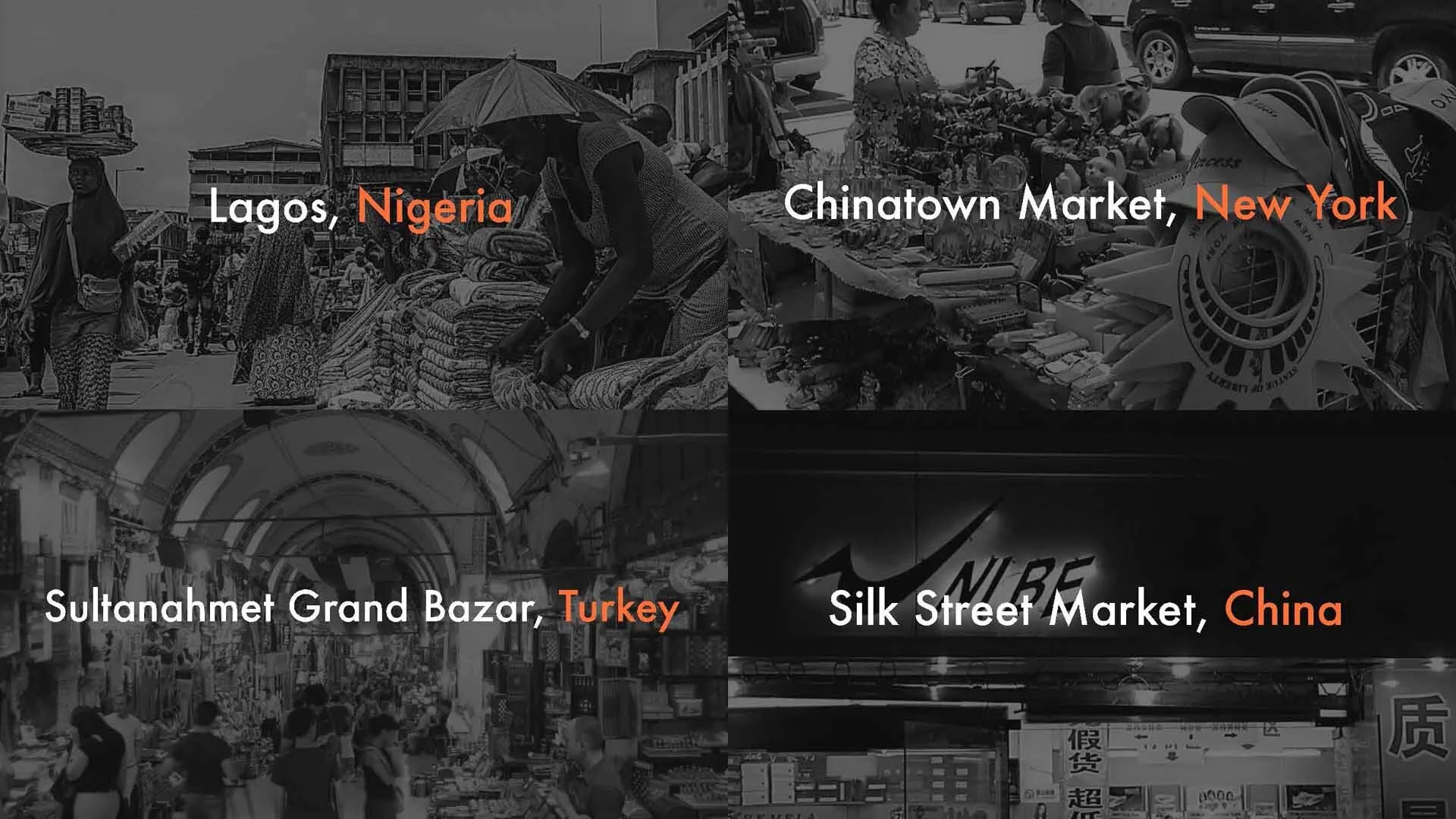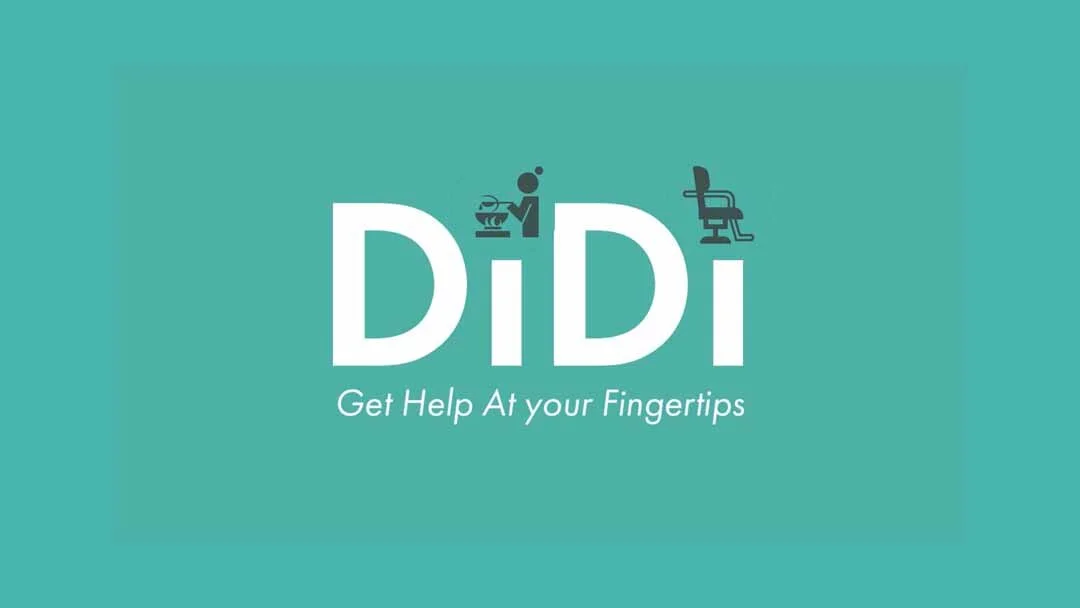The Scattered Billion: Designing for the Grey Economy
Having lived most of his life interacting with the local economy in Mumbai, Siddhant Goyle began examining the complex and scattered nature of what many experts call "the underground economy." The informal sector has to be classified as illegal, unlawful, and underground by nature because vendors and businesses are operating without a legal permit. This permit enables one to sell goods or services within defined legal parameters. Furthermore, it mandates the charging and payment of taxes, thereby ensuring that the holder fulfills their responsibilities to the government while operating a profitable business. Siddhant's thesis, The Scattered Billion: Designing for the Grey Economy, interrogates the informal sector's scattered nature and the people interacting with it daily.
Siddhant's thesis explores how design might provide a clear distinction between the black and grey economies within the informal sector, providing a clear and lasting benefit to the global economy. "Imagine, if all the world's informal sector was built into one nation, what would its annual GDP be?" asks Siddhant. "We have been designing for the formal sector, and we have been designing safety measures to be safe from the black market. But 2/3rds of the world's workforce gets neglected in this—which equates to approximately two billion people."

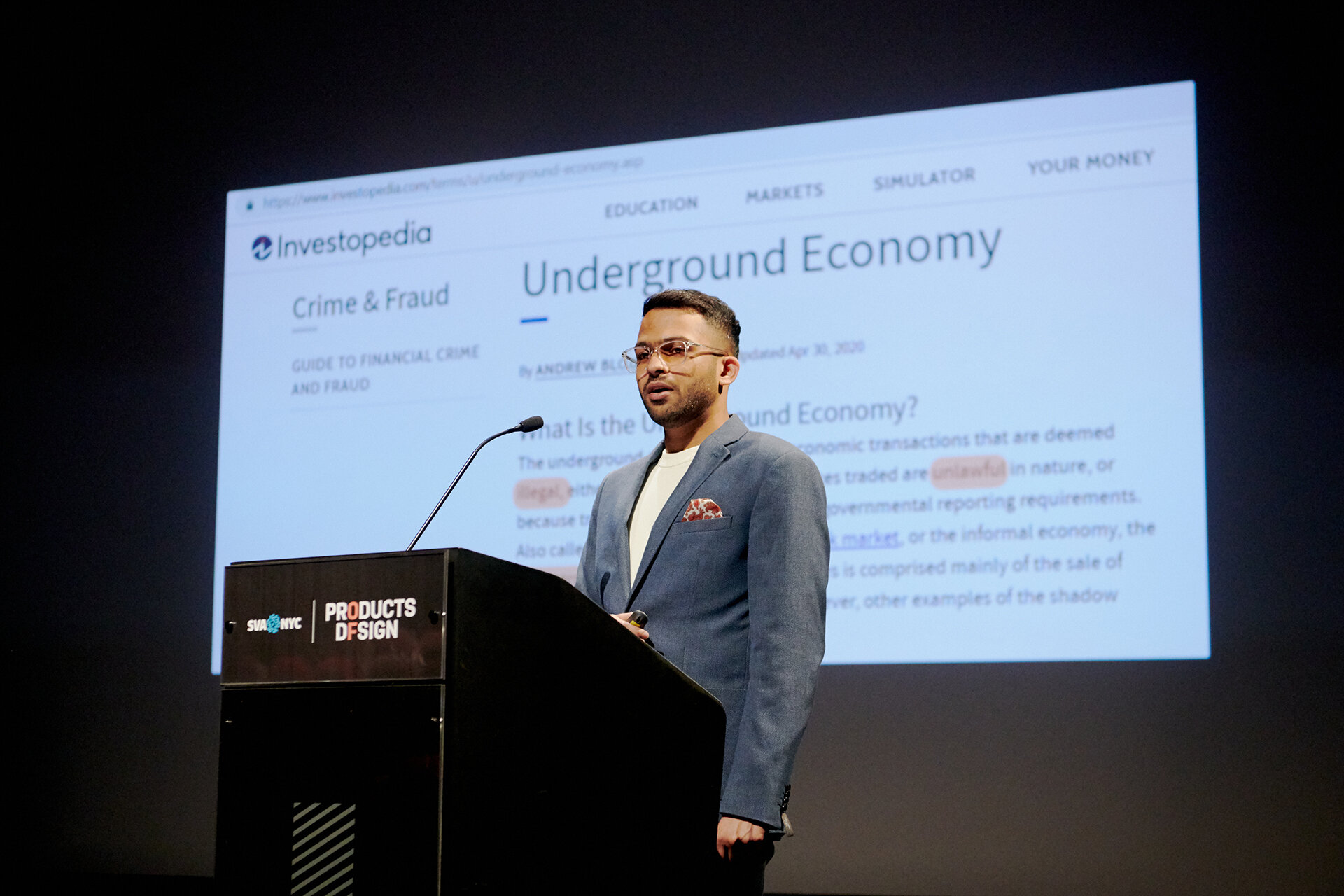
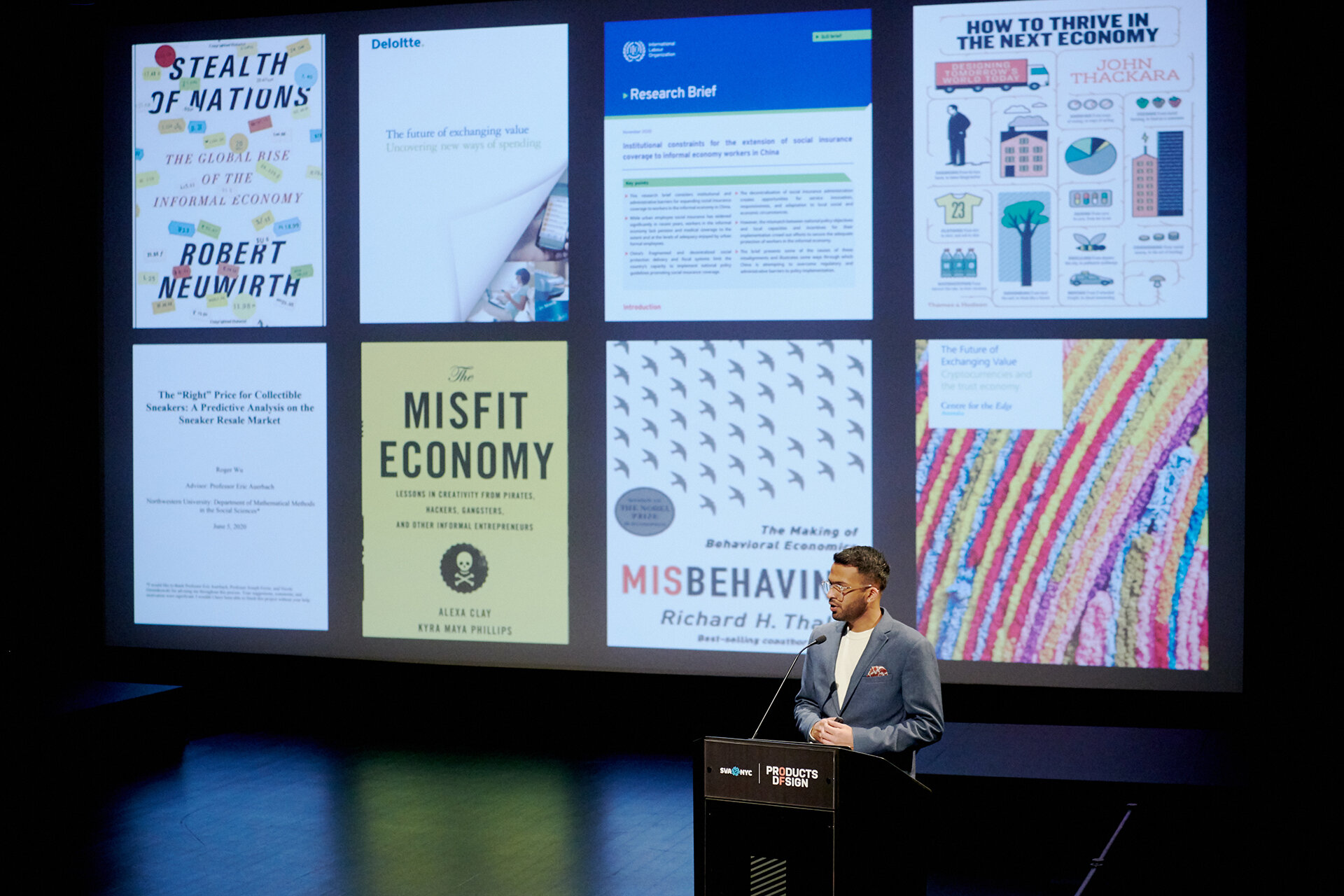
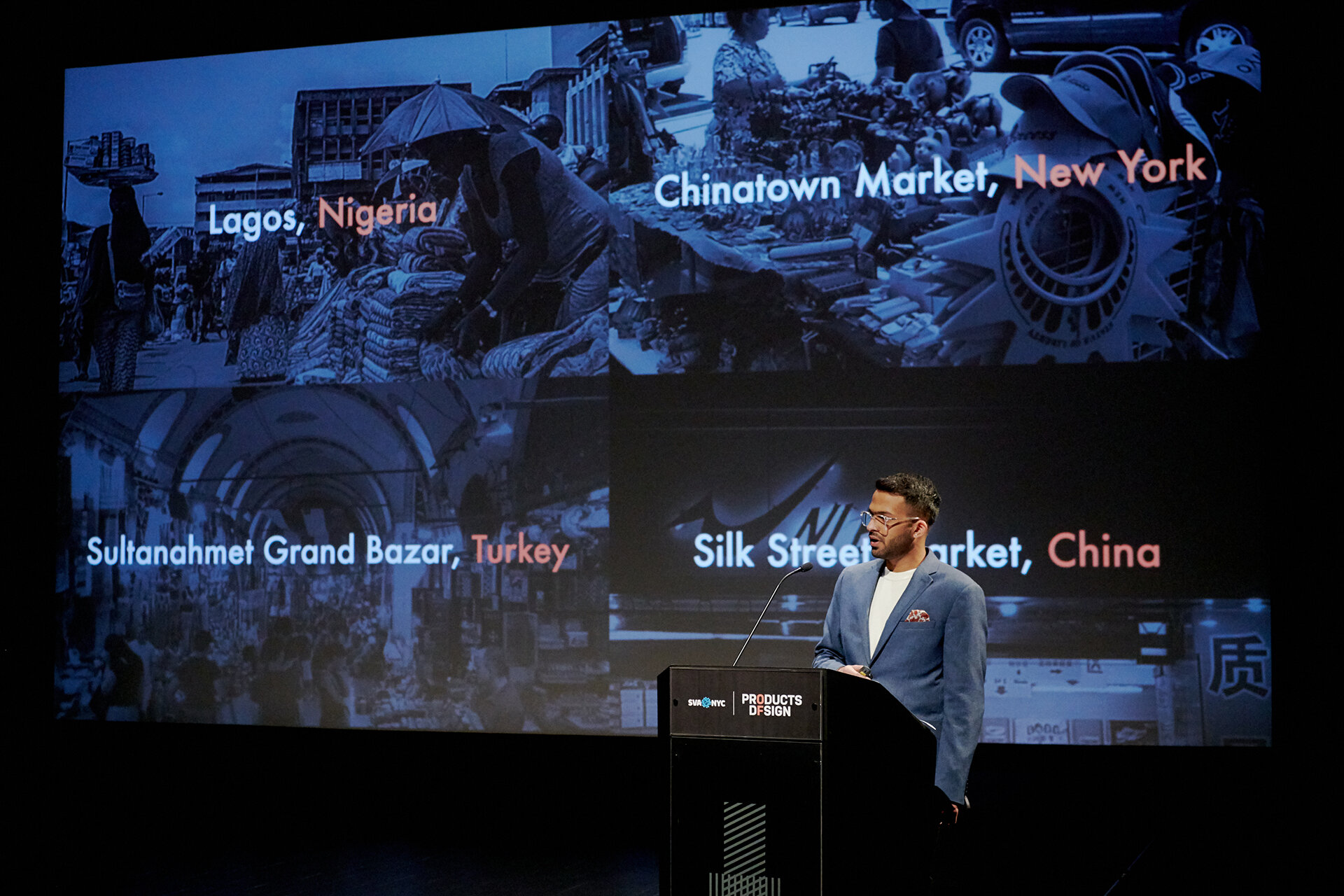

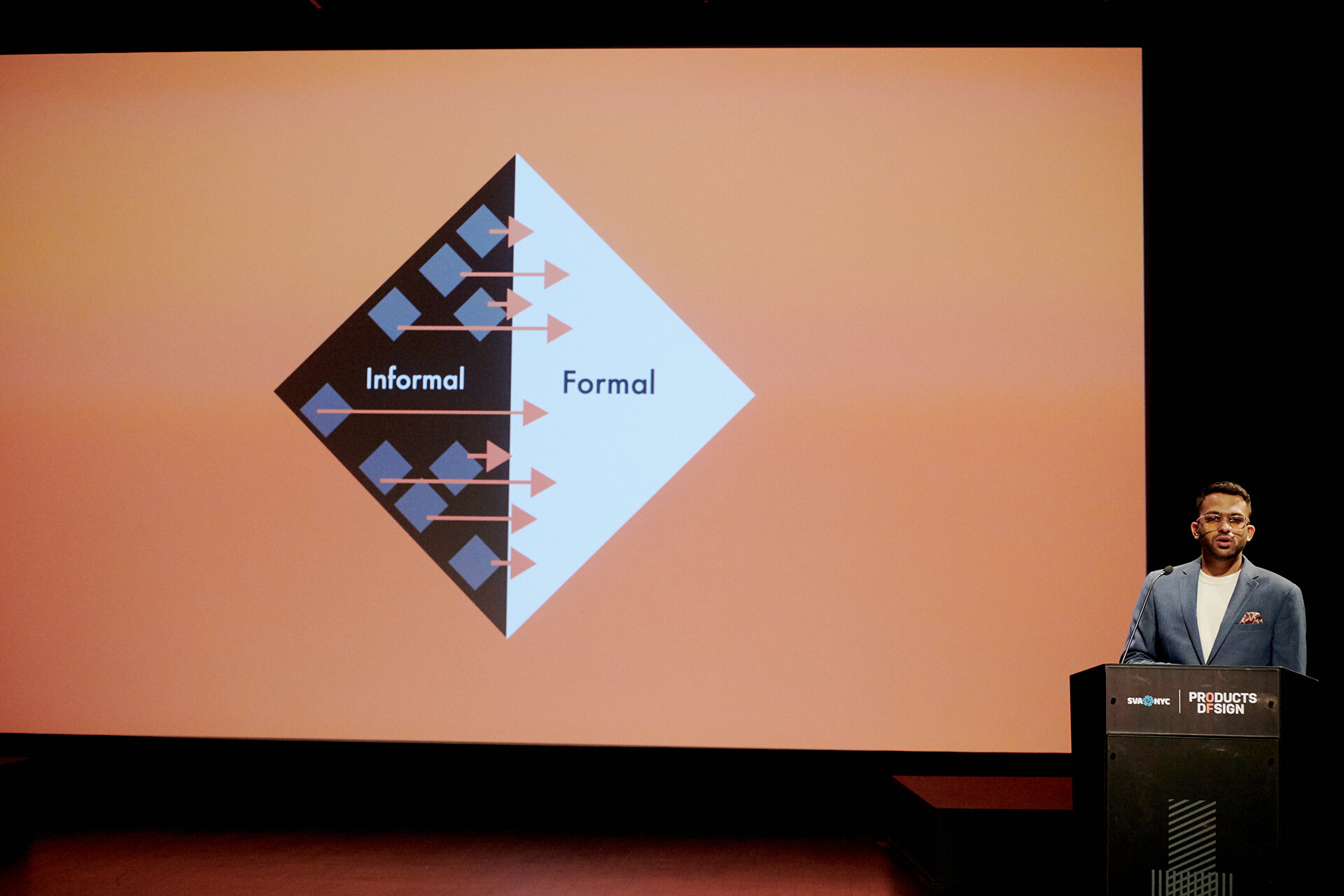
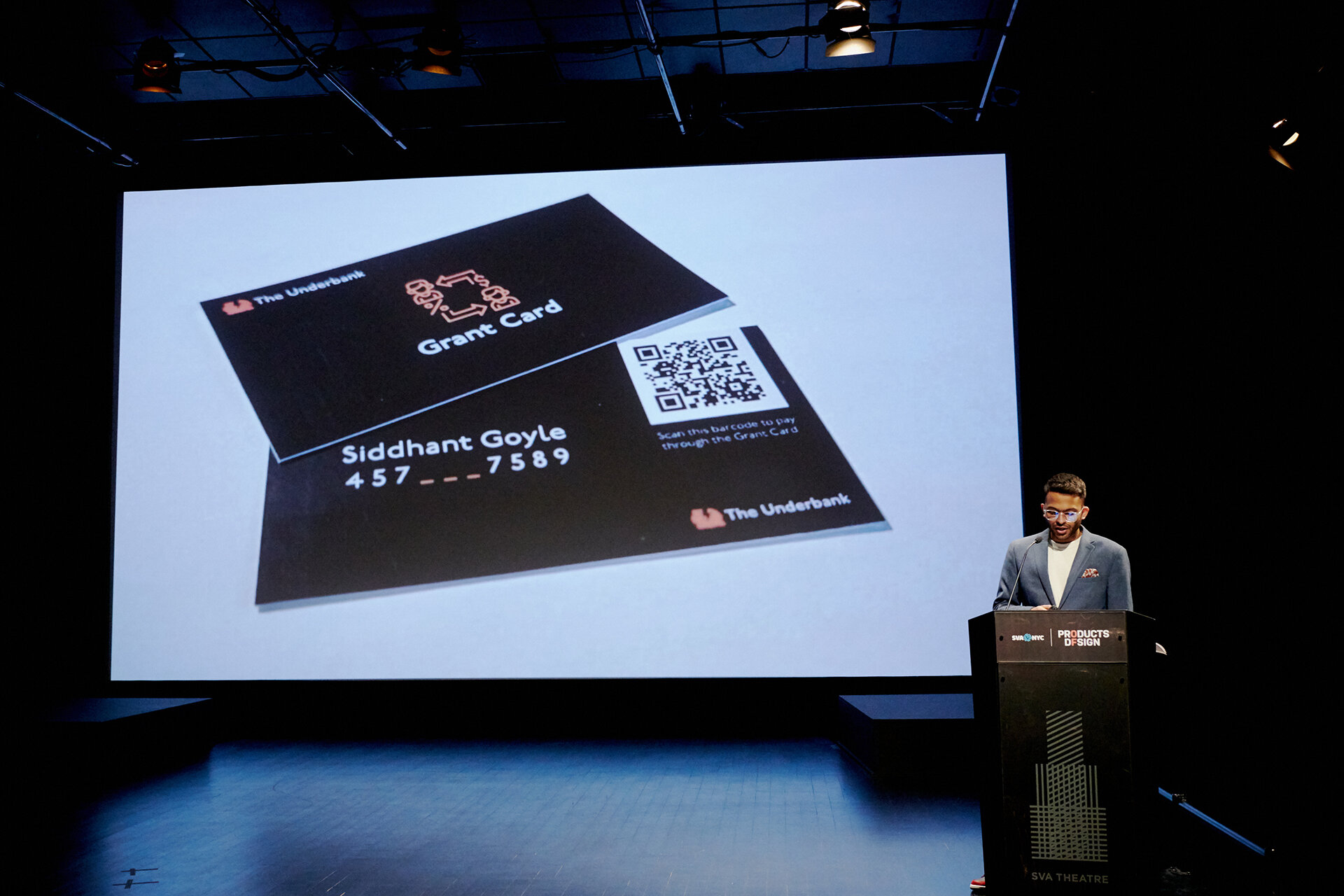
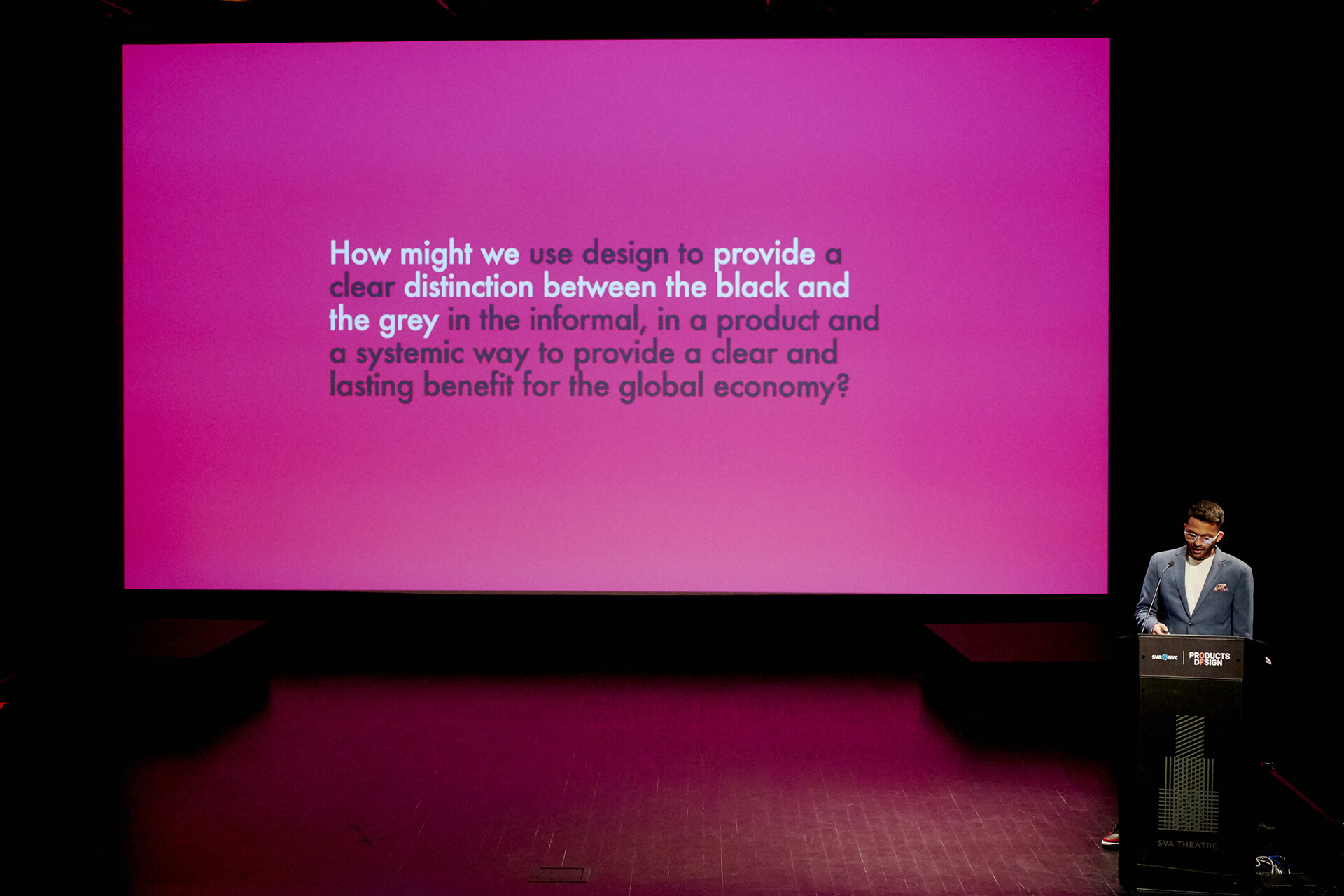
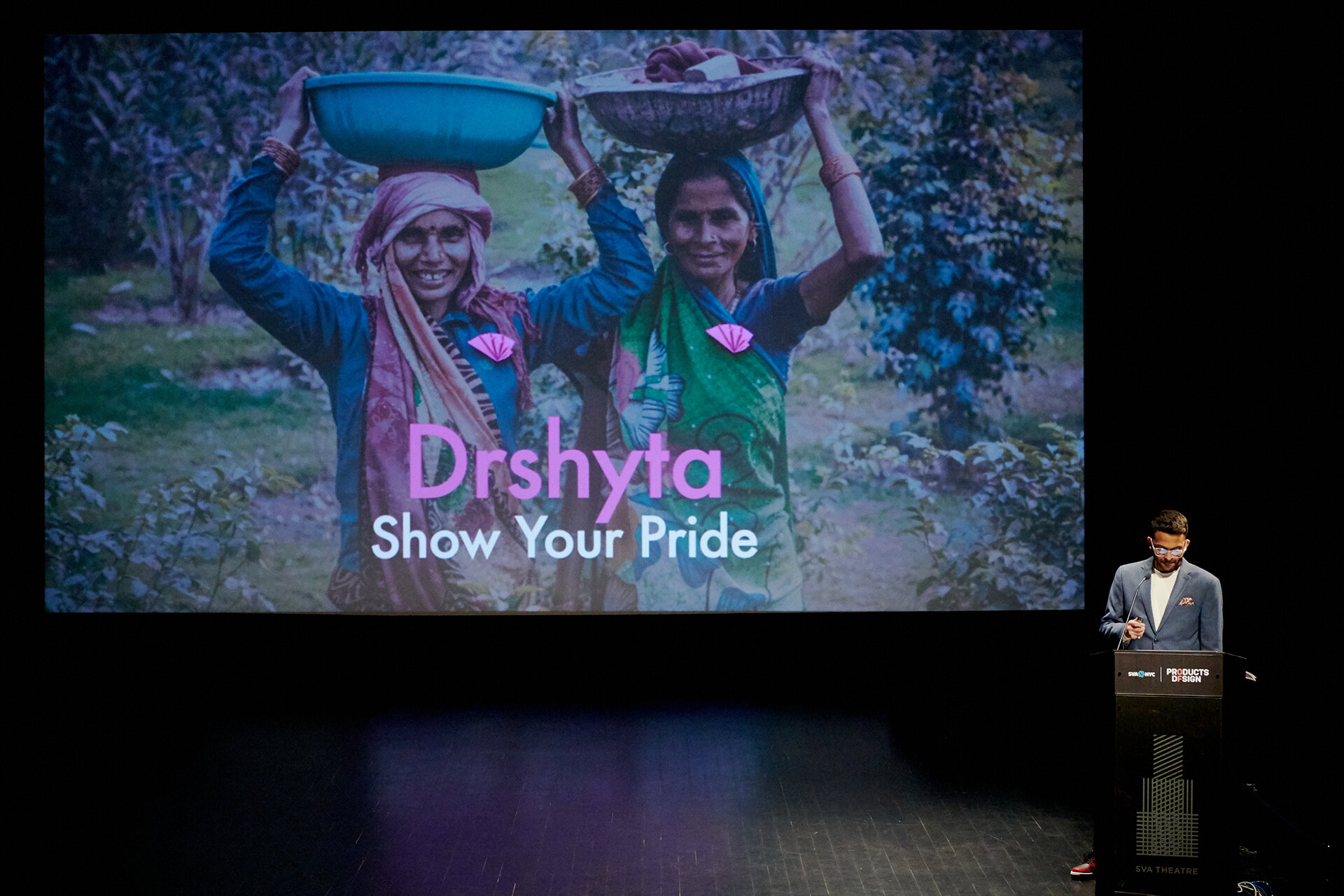
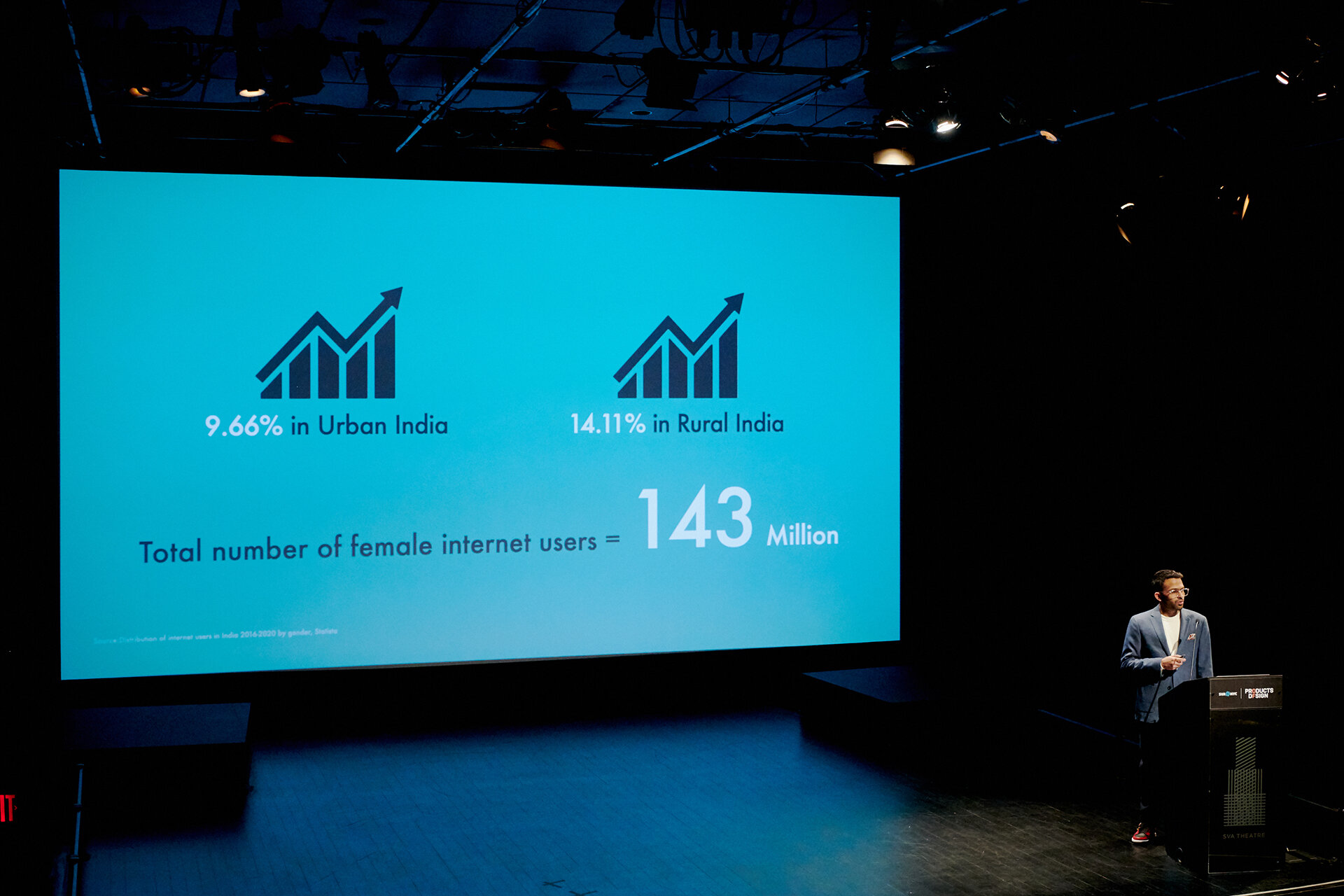
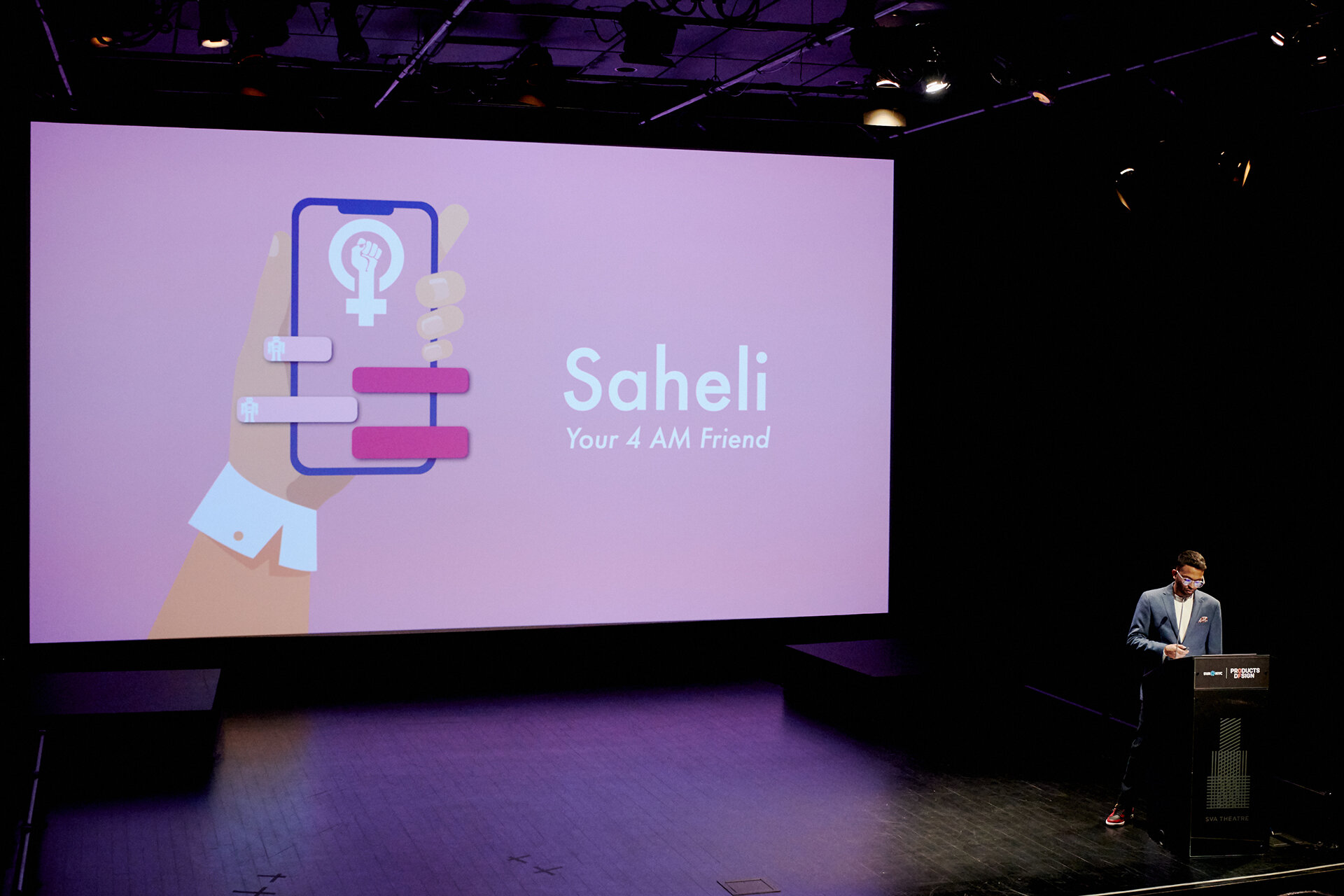


The Underbank: A digital baking system for the underbanked
Millions of underbanked and unbanked individuals get paid and transact in cash. They have no access to traditional banking, smartphone wallet banking, e-commerce, and loans. Almost 98% of all transactions in India or 68% of transactions by value ($1.5tn) are in cash. Cash transactions persist due to a lack of efficient payment acceptance and cash wage deposit systems, low bank/ATM density, and low smartphone ownership. Ninety-five percent of retail stores do not have POS systems. The payment apps PayTM/PhonePe cannot address the cash market, as they connect bank accounts, loaded by salaries, to digital wallets that operate on smartphones. This project, the Underbank, was designed during the initial part of Siddhant's thesis research, where the primary focus was the financial inclusion of the informal sector, providing social security benefits, and promoting inclusion from the bottom of the pyramid.
Udhar is an informal system in which goods and services are exchanged for a written receipt.
The Underbank utilizes the already existing system of udhar. Udhar is an informal system in which goods and services are exchanged for a written receipt. This receipt guarantees that the receipt holder will pay for the goods or services at a future date or, alternatively, all at once at the end of the month. Instead of creating a handwritten receipt, the Underbank can record the transaction with a DIY printable barcode that can be used to build a credit score similar to how credit cards work for banks. However, instead of interacting with bank managers and associates and actually going to a bank, underbanked and unbanked people can build a credit score by interacting with the same people they normally do on a day-to-day basis.
The Underbank is an alternative digital bank for the underbanked and unbanked to deliver financial inclusion for the bottom of the pyramid. The Underbank works as a retailer-assisted mobile wallet platform. This model loads cash directly to The Underbank digital wallets, which do not require smartphones. The retailers act as "bank branches" – assisting customers with loading The Underbank wallets with cash and providing essential financial services. It operates as an alternative bank, supporting retailers and completing transactions with traditional banks. Siddhant recalls developing the idea on the insight garnered from the conversation he had with one of the subject matter experts: "Informal sector workers are intimidated by banks and feel banks arent welcoming." Developed keeping that in mind trying to ease the intimidation that banks have on people instead of interacting with people they are already familiar with.
The Underbank can leverage its platform to issue wallet-linked prepaid grant digital and physical cards to customers and retailers to facilitate all financial transactions, eliminating traditional banks. "The vision is to build a fully digital, comprehensive banking and financial services ecosystem across India for the underbanked, analogous to telecom networks," Siddhant points out.
Dhrishyta: A DIY collective identity badge for women workers
Due to the lack of distinction between the black and the grey market within the informal sector, those working within the informal sector have suffered a considerable loss over the years, impacting the global economy. Stigma and how the informal sector is poorly perceived have affected the workers working in it. Drshyta is a project exploring women's daily life and rituals working in the informal sector and how solutions or ideas could be incorporated into their daily habits. Using the Maya principle, Siddhant imagined a future where there's a clear distinction in terms of the formal economy, the grey economy, and the illegal or the black economy. "Extrapolating from this idea and designing for these users for their near future, I imagined Drshyta as an artifact that can be easily incorporated into their daily rituals when they are getting dressed in front of the mirror," Siddhant shares. “Getting ready in the morning is a ritual seen among domestic workers: They often like to dress up in colorful sarees, sometimes wearing gajras that their husbands got for them and completing it with this DIY identity badge.” The badge gives these women a feeling of pride about their work, differentiating them from the illegal market. It sends a message that the work they do isn't unlawful or underground.
Another important feature of Drshyta is the informational pamphlet which helps inform workers and employers interacting and transacting in the informal sector about the Domestic Worker Act, as well as the rights that domestic workers have despite being excluded from the formal economy and not being registered as a domestic worker through the government.
Dhristya is intended as a print-your-own pamphlet. It walks the informal worker and their employer through a series of visual and textual prompts. It helps them make their own money pocket (to be attached to their bra), and a Dhristya badge that helps them be identified and be differentiated from the grey economy. Siddhant says, "Due to informal workers being scattered everywhere, compounded by the persistence of India's traditional gender norms, female workers feel invisible and isolated. Dhristya gives them an identity while differentiating them from the illegal economy. It allows them to continue operating in the informal ecosystem and provides them with information about their rights, which benefit them even if they are not registered as informal workers. Drshyta is a campaign aimed at ending the exploitation of women and children who are informal workers.
Saheli Chatbot: A WhatsApp complaint bot for women workers
During Siddhant's research, he discovered an alarming reality: many workers are sexually harassed and assaulted daily in their workplace. Complaints often don't get reported because women fear losing their jobs. They also worry that it could affect their future job prospects, as most of their future employment lies in the hands of the current employer and through word of mouth. These individuals fear that no one would listen to their side of the story and that their employer could bribe their way through the system. Ultimately, the only ones negatively affected by the process are the domestic workers.
Obtaining information about safety resources and helplines is another difficult task. These women do not always know how to search online for information. Most of their information and contact with the world is through WhatsApp or text messages. Getting all information through WhatsApp is potentially dangerous, as fake news has the potential to spread like wildfire on the platform. Because these women use WhatsApp daily, Siddhant decided to design for this existing platform, creating a bot—named Saheli—to collect data and provide informational resources regarding workplace safety and contraception. Saheli also gives women writing prompts about their daily lives, such as writing about when they felt helpless, angry, or victimized. They can also answer a mix of yes/no and multiple-choice questions, providing information regarding problems they may be facing in their workplace. Saheli can use this data to offer valuable informational resources.
Saheli is a WhatsApp chatbot that helps Indian female informal workers to communicate and complain about their day-to-day activities. It takes users through a series of questions asking how their day went and, at the same time, providing resources such as helpline numbers to address any misconduct at work. Siddhant says, "Many of these women spend their whole day at two or three different jobs while taking care of their kids, and then come home only to encounter drunk husbands who mistreat them. Since WhatsApp is their primary mode of all-purpose communication, Saheli was designed keeping in mind." Saheli is easy and accessible: Users simply send a 'Hi' to the WhatsApp number, and the conversation begins. It asks them about their ups and downs during the day and provides them with information about taking further steps if they are mistreated at their jobs.
Didi: A mobile application to find on-demand domestic jobs and services
Many women prefer working in the informal sector because it gives them the flexibility to take care of their children and the family during the day. In addition, they prefer to work in the areas surrounding their locality. Men in rural India often refuse to allow women to leave their villages for job placements due to persistent gender norms. In urban India, the jobs are geographically closer to women's homes. However, female workers still lack access to traditional male-dominated job networks. As such, they must rely heavily on word of mouth or on domestic work agencies that charge hefty commissions to arrange part-time positions.
Didi is a mobile platform to seek and provide on-demand domestic jobs connecting employers and domestic workers. Find hundreds of Didis or an older sister to help out the same day. From cleaning services to elder care, find help when it's needed the most — simply search for the service you need. The application provides recommendations based on postal/PIN code, price, and the workers' availability. The employer can negotiate the terms of the deal or make changes to the final arrangements by chatting with Didi through voice memos. The service makes money by charging the employers a monthly subscription fee of around $7.
Siddhant recalls what a domestic worker told him during his research: "I cannot read or write. I just use WhatsApp to send voice memos to my kids who stay away from home because of college." These women have been using these digital platforms, such as WhatsApp, to navigate their daily lives by sending voice memos to family members staying in their village. Having two primary users in mind—the domestic workers and the employers who hire them and pay in cash—Siddhant developed this application around the reality that many of these women cannot read or write.
What makes Didi so useful is that it does not require a smartphone for a worker to onboard or use the service. Using interactive voice response systems data such as name, price, postal/PIN code and service can be extracted, making it convenient for people with low literacy rates to use the service. Using Interactive Voice Response (IVR) systems, domestic workers who do not own a smartphone can still input data (such as their name, service they provide, and postal/PIN code) which employers need to know to hire them. These data points are then shown on the Didi app; potential employers can view this information and communicate with workers through voice memos.
To learn more about Siddhant Goyle’s work, take a look at his projects in more detail at siddhantgoyle.com.








